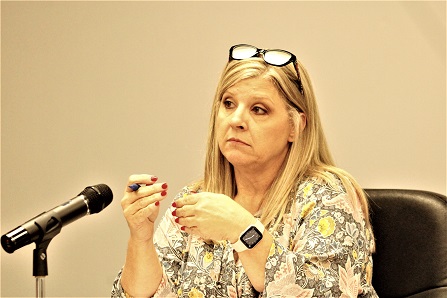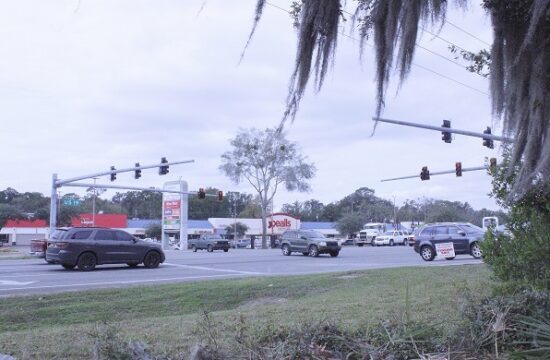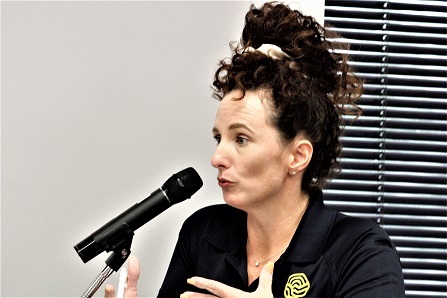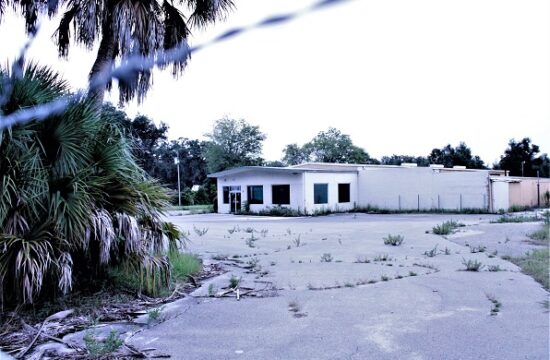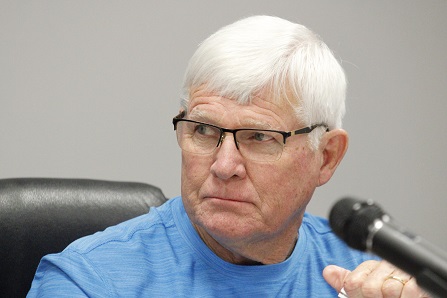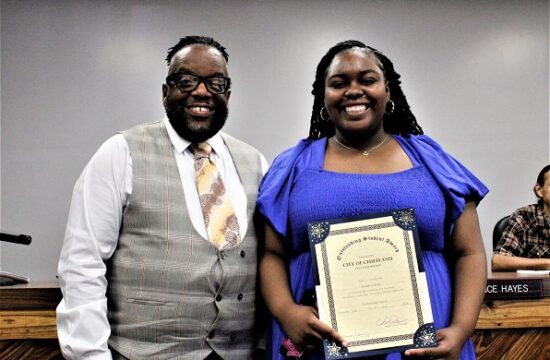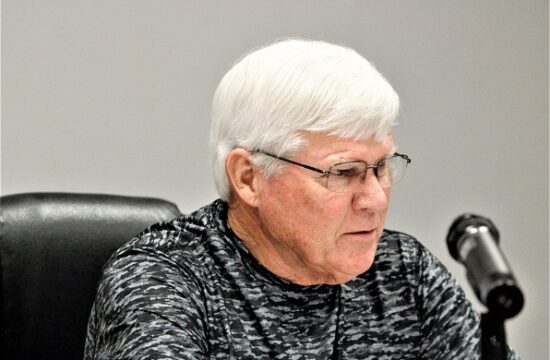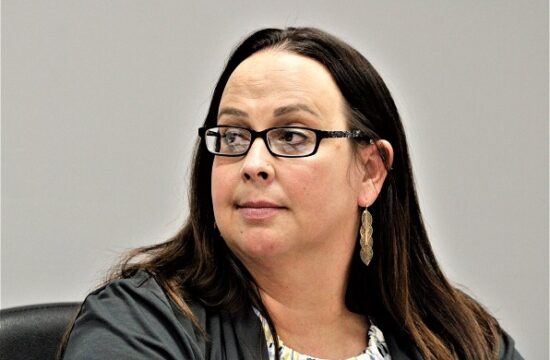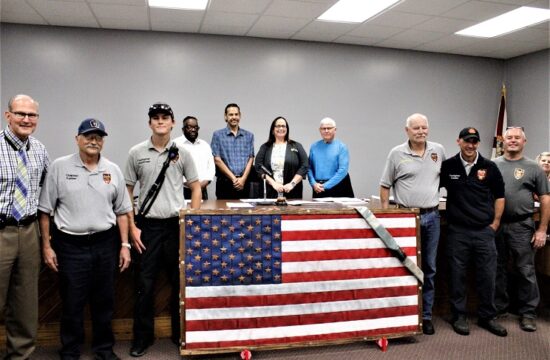Commissioners Rollin Hudson, Mayor Chris Jones and Commissioner Don Lawrence wade through budget numbers as part of their discussions about water rates, wage hikes and retention of employees.
By Terry Witt – Spotlight Senior Reporter
Chiefland hasn’t seen an increase in water rates in so many years no one in city government could recall the date of the last rate hike Monday night.
The subject popped into view during a budget meeting when commissioners were told their water and sewer departments are paying rank and file employees such low wages they can barely retain experienced employees much less attract starting workers.
After hearing of the low pay, commissioners instructed City Manager Mary Ellzey to contact the Florida Rural Water Association to request a free rate study like the last one the association handled for the city.
A rate study doesn’t mean rates would rise but the study would reveal how much rates should be increased to generate adequate revenue to operate the system.
Rate hikes are never popular.
On a different but related subject, the board voted 5-0 to approve the current 7.9075 property tax rate as its tentative millage for next year’s budget.
The millage will generate an estimated $1,024,000 or about $8,000 more than the current year. What that means is there hasn’t been much growth in the city’s property tax base over the past year.
But utilities were the hot topic of the budget meeting.
Sewer Superintendent Randy Wilkerson said he recently lost an employee of 4 ½ years, who was licensed to run the plant, because he could make more money working for Central Florida Electric Cooperative.
Pay is low for rank and file water and sewer department employees and is worse for starting workers.
“You go and invest so much time (for employees) to learn, and then they’re gone,” Wilkerson said. “Now, there’s just two of us in there, and not much wiggle room.”
When Wilkerson referred to having two employees, he meant the entire sewer department is operated by himself and one other employee 365 days a year. He said he and his employee worked through the July 4th weekend because it rained hard and they had to keep the system operating efficiently.
Water Superintendent Shane Keene has worked for the city 22 years and doesn’t remember the last time water rates were raised. He agreed it was difficult to keep veteran employees at current pay levels.
“You’ve got to take care of people you had here for a period of time,” Keene said.
Commissioners instructed Ellzey to compile information on the cost of a 6 percent pay raise, a 5 percent pay raise and the cost of a “years of service raise” for longer term employees by their next meeting.
The tentative pay increase is 2 percent in the proposed budget.
“Two percent isn’t enough to keep my people,” responded Police Chief Scott Anderson who says he is a training ground for neighboring departments that pay more than Chiefland. “There goes the same revolving door.”
He lost three employees to neighboring departments this year. He said it costs his department about $8,000 to train a police officer after they graduate from the police academy.
Utility employees got their first look at the years of service proposal and one employee gave an endorsement of sorts. The raise showed the city “cared a little bit,” he said.
City water and sewer departments are funded mainly by payments from utility customers, although state and federal grants are frequently used to replace aging equipment.
Commissioners met in a closed door session after their regular board meeting to discuss contract negotiations with the Police Benevolent Association, the public labor union representing rank and file police employees.
Police Chief Scott Anderson is always left out of the closed door sessions involving discussions about the PBA and his department. Spotlight asked why. Ellzey said state law doesn’t allow the police chief to attend the sessions.
Anderson would like to attend. He always battles for his department but is frustrated he isn’t permitted to sit through the closed door sessions, known as shade meetings.
Ellzey was also asked if the discussions by the board during shade meetings were recorded. She said the meetings aren’t recorded because state law doesn’t permit recording of the meetings.
Commissioner Norman Weaver said he wants to increase the city’s tax base and has been talking to corporate officials about why they don’t want to locate in Chiefland. He said an IHOP official told him the company won’t locate in Chiefland unless they can earn a minimum of $1 million annually.
He said he can’t prove the company could make that much money in Chiefland. He said he can’t go around asking local restaurant owners if they earned $1 million in a year’s time. But he would like to see Chiefland’s tax base increase. He believes the commission is interested in growth.
Hudson said he wasn’t advocating for an increase in water rates when he brought up the subject of a study, but at the same time he said the sale of water is a true user fee and is fair in that sense. Everyone pays for what they use.
———
City of Chiefland Regular Meeting July 8, 2019; Posted July 8, 2019



